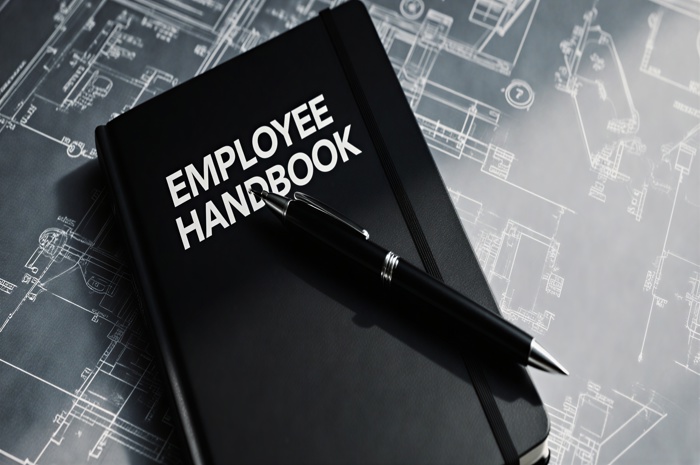When incorporating a limited company, a minimum of one director must be appointed. A company director is an individual who has the legal responsibility of running the company, as well as ensuring the company's accounts and reports are an accurate representation of the company's finances. They must also ensure that the filings are submitted on time to the relevant legal bodies.
Who can be a company director?
Becoming a company director means you must meet several criteria. The first is that you must be 16 years old or over. Secondly, you cannot be disqualified from being a director (possible reasons for disqualification can be found later in the article). Thirdly, directors are not required to live in the UK. However, although the company must have a UK registered office address. Lastly, you're also not typically allowed to be a company director if you're under restrictions from Bankruptcy or a Debt Relief Order.
What do I need to provide to become a company director?
If you wish to become a company director to either set up, run, own or control a company in the UK, you will be required to verify your identity to prove that you are who you're claiming to be.
You can verify your identity directly with Companies House or through an Authorised Corporate Service Provider (ACSP). An example of an ACSP would be an intermediary like a Company Formation Agent, such as Easy Digital Company who can help you to incorporate your new company.
The intermediary will then conduct Anti-Money Laundering checks. These are intended to prevent the illegal generation of income and disguising of the origin of money. During this identity verification procedure you will be asked to provide:
- Your Full name
- Date of Birth
- Proof of Residential Address
- A photograph of an official document with an image of yourself on it (Proof of Name) being held next to your face
*Please note: As of the 4th March 2024 all newly incorporated companies must provide a registered email address (REA) and directors must also confirm that they accept that the company will be used for legal purposes. This is required due to the introduction of the Economic Crime and Corporate Transparency Act (2023)*
If you wish to learn more about Anti-Money Laundering Checks, also known as AML checks, please read of our article What are AML checks? Within this article you will learn how to pass your AML check with flying colours, as well as the types of documentation that are legally accepted as proof of identity.
As a company director, what information is visible on the Companies House register?
In return for the benefits of limited liability, a limited company must be open and transparent. Therefore, as a director or officer of a limited company, they must be prepared for some personal details to be publicly available. The details which are visible to the public are:
- Director's full name
- Director's nationality
- Director's occupation
- The month and year of the director's date of birth
- Directors correspondence address
What are the responsibilities of a company director?
As the director of a limited company there are several responsibilities which they must either oversee or complete themselves. A company can hire other professionals to manage certain responsibilities on their behalf. Although, it should be noted that even if someone is hired to oversee any section of the day-to-day operations, the director of the company is legally responsible for the performance, accounts and records of the company.
The director must:
- Follow the company's rules as written in it's articles of association
- Keep the company's records and report any changes to the relevant body
- File the company's accounts and it's Company Tax Return (CT600)
- Inform other shareholders if you (the director) may personally benefit from a transaction that the company makes
- Pay the company's Corporation Tax
What are the duties of a company director?
The Companies Act 2006 clearly maps out the legal duties that a director takes on when they decide to become a company director. These legal duties are comprised of 7 statutory duties that must be met while by all company directors. The 7 duties stated in the Companies Act 2006 are as follows:
1. Duty to Act within Powers
'A company director must act in accordance with the company's constitution and only exercise powers for the purposes for which they are conferred'
When a company is incorporated articles of association and other similar documents will be written (any agreements between the shareholders affecting the constitution). As director it is important to become familiar with the contents of these documents as they form the company's constitution that a director must exercise their powers within.
2. Duty to Promote the Success of the Company
'A director of a company must act in the way they consider, in good faith, would be most likely to promote the success of the company for the benefit of its members as a whole'
Promoting success in the business means directors should take into account the the long-term consequences of any decision being made. When making these decisions a director should take into consideration the interests of the company's employees, the fostering of the company's business relationships as well as the impact of the company's operations on the community and the environment.
3. Duty to Exercise Independent Judgement
'A director must exercise independent judgment by acting in accordance with an agreement duly entered into by the company that restricts the future exercise of discretion by directors' This doesn't prevent a company director from utilising professional advice but it does mean that the director should make their own judgement on whether to use the advice provided.4. Duty to Exercise Reasonable Care, Skill and Diligence
'A director of a company must exercise reasonable care, skill and diligence' that would be exercised by a reasonably diligent person with:
- the general knowledge, skill and experience that may reasonably be expected of a person carrying out the same functions as you in relation to the company
- the general knowledge, skill and experience that you actually possess'
5. Duty to Avoid Conflicts of Interest
'A director must avoid a situation in which they have, or can have a direct or indirect interest that conflicts or possibly may conflict with the interests of the company'
This applies in particular to the exploitation of any property, information or opportunity. It should be noted that this duty is not broken if the situation cannot reasonably be regarded as likely to give rise to a conflict of interest, or if the matter has been authorised by the directors. This authorisation could be given if it is a private company as long as nothing in the company's constitution invalidates such authorisation.
6. Duty to Not Accept Benefits from Third Parties
'A director must not accept a benefit from a third party conferred by reason of being a director or doing anything as a director'
A third party is a person other than the company, this could be an associated company or a person acting on behalf of the company or associated company.
This duty would not be broken if the benefit being accepted cannot reasonably be regarded as likely to give rise to a conflict of interest.
7. Duty to Declare Interest in Proposed Transaction or Arrangement
'If a director of a company is in any way directly or indirectly, interested in a proposed transaction or arrangement with the company, they must declare the nature and extent of that interest to the other directors'
Any declaration required by this duty must be made before the company enter into the transaction or arrangement.
A director won't need to declare an interest:
- if it cannot reasonably be regarded as likely to give rise to a conflict of interest
- the directors are already aware of it (and for this purpose the other directors are treated as aware of anything which they should be reasonably aware
- it concerns terms of their service that have been or are considered by a meeting of the directors
How would a director prove they have fulfilled their duties?
Directors may be requested to provide evidence that they have fulfilled their duties. The best evidence that a director can use as proof of their fulfilment of their duties is the documenting and keeping of detailed board minutes. Board minutes are useful record for directors as it is unlikely that they would remember what was discussed and that they had acted in accordance with their duties when making key decisions.
Board minutes are a record of the decision making process that is conducted by the board of directors. They serve a legal purpose for documenting a groups compliance with company's constitution and that the directors have followed the company's procedures.
All board minutes must be kept for 10 years after the board meetings have taken place, failure to keep such records can lead to the company receiving a penalty of up to £1,000.
What can a director be disqualified for?
As mentioned earlier in this article, company directors can be disqualified if they do not meet their legal responsibilities. However, this is not the only thing that a director can be disqualified for.
Directors can be reported if their conduct is deemed as being 'unfit' to run a company. Unfit conduct can be if any of the following take place:
- The director allows a company to continue trading when it can't pay off its debts
- Not keeping proper company accounting records
- Not sending accounts and returns to Companies House
- Not paying taxed owed by the company
- Using company money or assets for personal benefit
If a director has been proven to have committed any of the above, they will be disqualified from being a director for up to 15 years. Whilst disqualified you cannot:
- Operate as a director of any company registered in the UK or an overseas company that has connections with the UK
- Be involved in the forming, marketing or running a company
If a disqualified director is found to have breached the terms of their disqualification they can be fined or even sent to prison for up to 2 years.
Hopefully this article has answered any questions that you may have had about what is a company director. If you wish to find out more about incorporating a company or running a business, I would recommend having a read through our Knowledge Base. Here you can find plenty of helpful articles about the intricacies of starting a business. If you wish to incorporate your business, you can do so here.





















